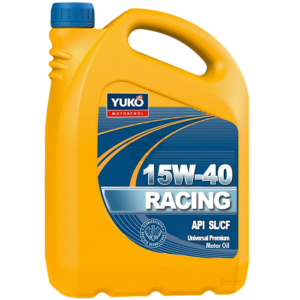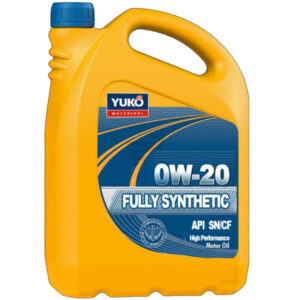
The Essential Role of Engine Oil in Vehicle Maintenance
Engine oil is the lifeblood of any vehicle’s engine, playing a crucial role in ensuring that the engine runs smoothly and efficiently. It serves several vital functions that are essential for the longevity and performance of the engine.
**LUBRICATION:**
Motor oil creates a thin barrier between engine components, reducing friction during the combustion cycle. This lubrication prevents the parts from wearing down due to excessive rubbing, which can lead to costly repairs and maintenance issues.
**ACID NEUTRALIZATION:**
Combustion processes can produce harmful acids, but engine oil is formulated to neutralize these corrosive substances. This helps to maintain the integrity of the engine’s internal parts, preventing damage that can hinder performance.
**CLEANING:**
Over time, engines can accumulate sludge and other residues that can impede their function. Engine oil acts as a cleaning agent, dissolving and carrying away these unwanted deposits to keep the engine block pristine and free of blockages.
**CORROSION AND OXIDATION PREVENTION:**
Engine oil contains additives that protect against rust and corrosion, which can be particularly damaging in the harsh environment inside an engine. By forming a protective layer, motor oil shields the cylinder blocks and other critical components from oxidative damage.
Understanding that not all engines are created equal is crucial when selecting the right engine oil. Different engines have varying requirements based on their design, operating conditions, and manufacturer specifications. Using the recommended grade and type of engine oil is not just a suggestion—it’s a requirement for optimal engine health and performance.
To ensure your vehicle’s engine remains in top condition, it’s important to regularly check and change the engine oil according to the manufacturer’s guidelines. This not only helps in achieving the best performance but also extends the engine’s lifespan, saving you from premature wear and potential engine failure.
In conclusion, engine oil is more than just a lubricant; it’s a multifunctional fluid that plays a key role in engine maintenance. By understanding its importance and ensuring you use the correct oil for your engine, you can keep your vehicle running smoothly for years to come. Remember, investing in quality engine oil is investing in the health of your vehicle.
UNDERSTANDING ENGINE OIL GRADES AND TYPES
Choosing the right engine oil for your vehicle is crucial for ensuring its longevity and optimal performance. The grades of engine oil, indicated by numbers and letters such as 0W-20 or 5W-40, refer to the oil’s viscosity – its resistance to flow. Viscosity affects how easily the oil pours at specific temperatures; lower viscosities are better for cold temperatures and higher viscosities are suitable for higher operating temperatures.
The ‘W’ in the oil grade stands for ‘Winter’, not weight, indicating the oil’s viscosity at cold temperatures. For example, a 0W-20 oil is thinner at startup, allowing for easier cold starts, while the ’20’ indicates the viscosity at the engine’s normal operating temperature.
HERE’S A BRIEF OVERVIEW OF THE COMMONLY USED ENGINE OIL GRADES:
– **0W-20**: Ideal for cold climates, providing efficient lubrication during cold starts and maintaining stability at normal operating temperatures.
– **0W-30**: Offers similar cold start benefits as 0W-20, with slightly higher viscosity when the engine is warm, suitable for a range of vehicles.
– **0W-40**: Provides excellent low-temperature fluidity and high-temperature stability, often used in performance or luxury vehicles.
– **5W-30**: A versatile oil grade, widely recommended by vehicle manufacturers, particularly in the Indian market, suitable for a variety of climates.
– **5W-40**: A fully synthetic option that ensures protection during cold starts and maintains performance at higher temperatures.
– **10W-40**: Thicker at lower temperatures, this grade is designed for warmer climates or older engines that may benefit from a higher viscosity at startup.
When selecting engine oil, it’s also important to consider the type of oil:
– **Mineral Oils**: Derived directly from crude oil, suitable for older vehicles or those that run on standard specifications.
– **SEMI-SYNTHETIC OILS**:

A blend of mineral and synthetic oils, offering better protection and performance than mineral oil alone.
**SYNTHETIC OILS**:

Engineered molecules provide superior performance, protection, and longevity, ideal for modern engines and extreme conditions.
Always consult your vehicle’s owner manual or a professional mechanic to determine the appropriate oil grade and type for your specific make and model. Using the correct engine oil ensures that your engine runs smoothly, remains clean, and operates efficiently, ultimately contributing to your vehicle’s health and your peace of mind on the road. Remember, the right oil can make all the difference in your engine’s performance and lifespan. Choose wisely and drive confidently.
THE EVOLUTION AND BENEFITS OF FULL SYNTHETIC ENGINE OIL
In the realm of automotive maintenance, engine oil is the lifeblood that keeps vehicles running smoothly. Among the various types of engine oils available, full synthetic engine oil stands out as the pinnacle of engine lubrication technology. Its superior formulation offers unparalleled benefits for both high-performance vehicles and daily drivers alike.
### THE SCIENCE OF SYNTHETICS
Full synthetic engine oil is engineered through an intricate process that breaks down crude oil to its molecular base. This allows the removal of more impurities compared to conventional oils and results in a product with uniform molecular size an hello d shape. The outcome is a lubricant that provides consistent and reliable performance under a wide range of temperatures and conditions.
### PERFORMANCE UNDER PRESSURE
One of the most significant advantages of full synthetic oil is its ability to function optimally in extreme temperatures. Whether it’s the cold of winter or the heat of summer, synthetic oil maintains its viscosity, ensuring that engines are protected and perform efficiently. This adaptability also extends to high-stress situations, such as towing or racing, where the oil’s superior lubrication minimizes wear and tear on engine components.
### EFFICIENCY AND ECONOMY
While the initial cost of synthetic oil may be higher than conventional oils, the long-term benefits can lead to cost savings. The enhanced lubrication properties contribute to better fuel efficiency, and the extended lifespan of the oil means fewer oil changes over time. This not only saves money but also reduces the environmental impact by decreasing waste oil disposal.
### CHOOSING THE RIGHT OIL
When selecting an engine oil, it’s crucial to consider the vehicle manufacturer’s recommendations. Factors such as the make and model of the car, driving conditions, and personal driving style all play a role in determining the most suitable oil. Brands like Yuko, Wolver, Liqui Moly, Castrol, and Mobil offer a range of full synthetic oils that cater to various needs and specifications.
### EXPERT CARE FOR YOUR VEHICLE
For those seeking professional assistance with their vehicle’s lubrication needs, DEW AUTOMART provides a comprehensive service. With a focus on high-quality automotive lubricants and parts, DEW AUTOMART ensures that each vehicle receives the best care with OEM recommended products.
In conclusion, the evolution of full synthetic engine oil represents a significant leap forward in automotive technology. Its exceptional performance, efficiency, and protective qualities make it an excellent choice for anyone looking to enhance their vehicle’s longevity and operation. As the automotive industry continues to advance, synthetic oils will undoubtedly play a pivotal role in the future of engine care.
NB.
In Nigeria, which is generally warm, a higher viscosity oil like 5W-30 might be more commonly recommended. However, it’s essential to consult your vehicle’s manual or a professional mechanic because some modern engines are specifically designed to operate optimally with 0W-20 oil regardless of the climate. Additionally, synthetic oils like 0W-20 can offer better protection and performance under extreme temperatures and pressures, which might be beneficial for engines operating in a hot climate.
On this note if your car manufacturer recommends 0w20 engine oil & you reside in Nigeria you can stick to it as your engine is designed for its use irrespective of the climatic temperature
DEW AUTOMART Provides Auto Services & Maintenance & Distributes High Quality Automotive Lubricants & Parts to Clients that want the best for their Cars & Equipment.
Items Sold & Distributed Include
Engine Lubricants, Hydraulics, Plug & Coils, Shock absorbers, Brake Pads, Oil Filters
Batteries, Motor Tyres, AC Parts & Accessories etc.
Shop online https://dewlimited.com/store/automart/
Offices at
Xorint towers golf estate entrance port harcourt
33 olu obasanjo ekeson plaza ikeokwu port harcourt
7 east west road rumukwurushi port harcourt
https://goo.gl/maps/iuJ9EH56HvaL8o4w8
